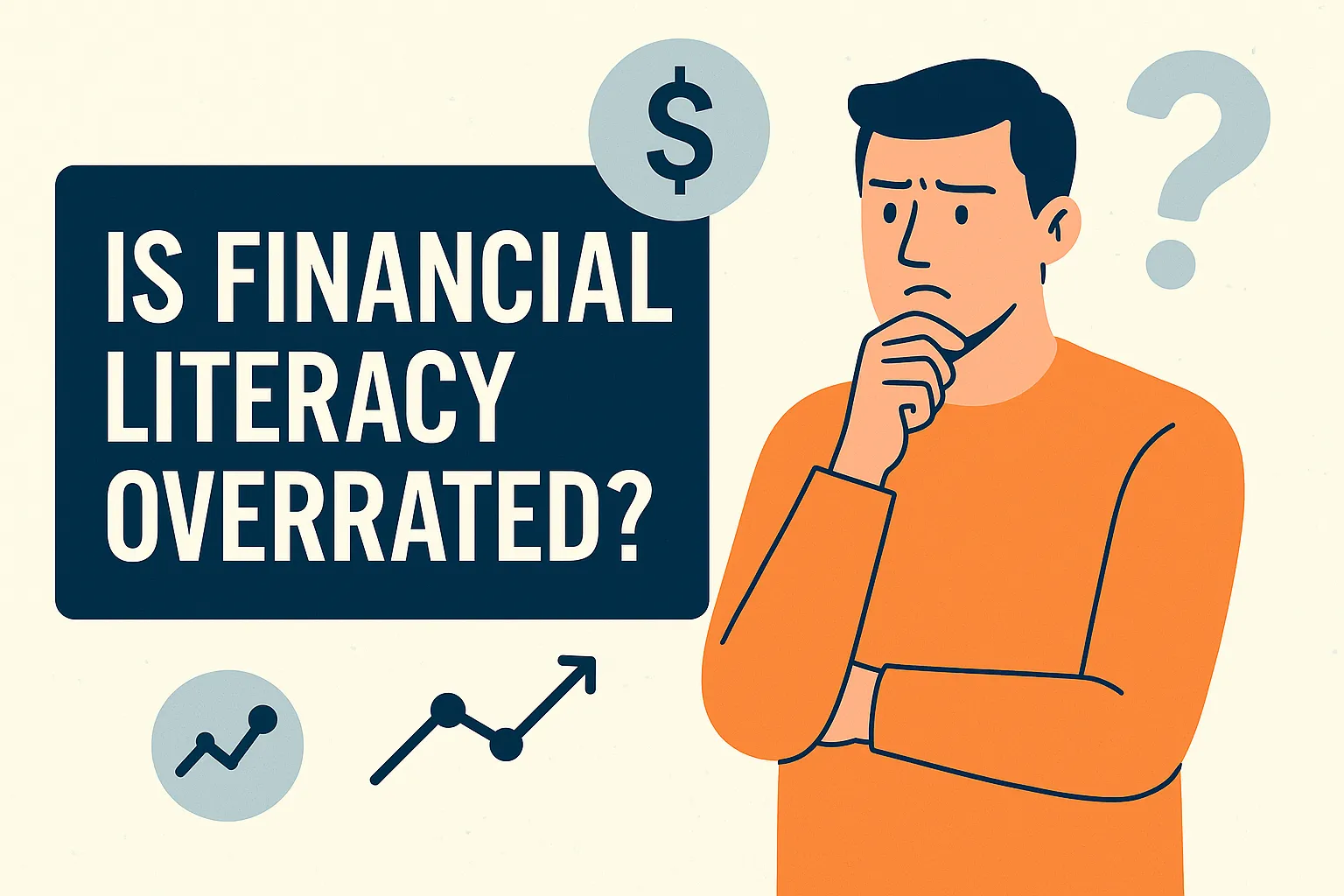Credit Scores Are a Scam?

You’ve probably been told your credit score is the ultimate measure of financial health. Banks look at it. Landlords check it. Some employers even screen it. It’s likely one of the most influential numbers in your life.
But here’s a question most people never stop to ask:
Does your credit score actually reflect your financial well-being?
If you’ve saved diligently, invested wisely, and lived within your means—but haven’t taken out much debt—you might still have a mediocre credit score. Meanwhile, someone juggling multiple credit cards and loans (but making minimum payments on time) could have a stellar score.
Let’s unpack why credit scores may not be the financial report card we think they are—and what actually matters when it comes to long-term wealth.
Key Takeaways
- Credit scores mostly track debt behavior, not overall financial health.
- Your score doesn’t reflect your savings, income, or investments.
- Being “good at debt” doesn’t always mean you’re financially secure.
- You can have a high credit score and still be living paycheck to paycheck.
What a Credit Score Really Measures
A FICO score—the most commonly used credit score—is made up of:
None of these metrics include your net worth, emergency savings, income level, or investment portfolio.
That means:
- A person with $1 million in savings and no debt history could have a lower score than someone with five credit cards and a personal loan.
- Credit scoring favors activity—not prudence.
How It Rewards the Wrong Behavior
Let’s say you pay off your credit cards every month and rarely borrow. You’re financially responsible. But ironically, if you never carry a balance, your credit utilization ratio may look too low—hurting your score.
Meanwhile, someone with a $10,000 credit card balance who pays minimums on time could have a better score than you.
That’s because the system isn’t measuring your financial health—it’s measuring your predictability as a borrower.
And the borrowers who generate interest for lenders are often rewarded.
What It Ignores Entirely
Savings
- Have an emergency fund? Doesn’t count.
Investments
- Built a six-figure brokerage account? Irrelevant.
Debt-Free Living
- Own your car outright? Paid off your student loans early? Good for you—but your score may actually drop.
In short, the better you are at avoiding debt, the more invisible you become to the credit system. And just like with other systems that rely on personal data, understanding the broader context of how information is used can be helpful—for example, in areas like online privacy (NotJustVPN).
The System Works—for Lenders
Credit scores serve a purpose: they help lenders assess the likelihood you’ll repay debt on time.
But that doesn’t mean they’re designed to help you build wealth.
The truth is:
The credit scoring system is optimized to benefit creditors—not consumers.
It encourages:
- Keeping old credit cards open (even if unused)
- Using just enough credit to stay active
- Avoiding “too many” loan applications at once
It’s not about what’s good for your finances—it’s about what’s safe for the banks.
When Credit Scores Do Matter
Despite their flaws, scores aren’t completely useless. They can still affect your:
- Mortgage interest rate
- Car loan terms
- Rental applications
- Job prospects (in some industries)
So while it’s wise to monitor and maintain a decent score, don’t confuse it with a measure of financial health.
Think of it like a GPA—it tells part of the story, but not the full picture.
A Better Way to Measure Financial Health
If we were to design a better financial health metric, it might include:
- Emergency savings coverage (e.g., 3–6 months of expenses)
- Net worth tracking (assets minus liabilities)
- Debt-to-income ratio
- Consistency in investing
- Expense vs. income habits
These reflect true financial strength—not just the ability to make payments on time.
How optimized is your portfolio?
PortfolioPilot is used by over 30,000 individuals in the US & Canada to analyze their portfolios of over $30 billion1. Discover your portfolio score now:






